
















Be the first pick. Stand out from the crowd.
Your clients are more sophisticated than ever, requiring you to perform at a higher level of professionalism. By earning the Graduate, REALTOR® Institute Designation (GRI), you will lead the pack with real-world knowledge about new technologies, laws and marketing techniques that positively affect your bottom line.
Questions? Email:
GRI@MDRealtor.org
Must complete Series 100 & 200 for a t otal of 72 hours, no renewal required.
Each six-hour course offers advanced g uidance for the modern REALTOR® and most provide continuing education credits.
Each GRI series is offered virtually twice a y ear through Maryland REALTORS®. Sessions run from 9:00am to 3:45pm.
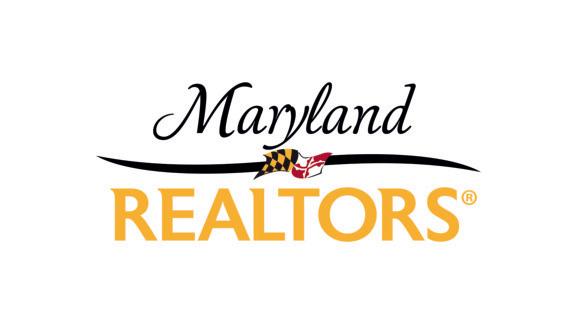



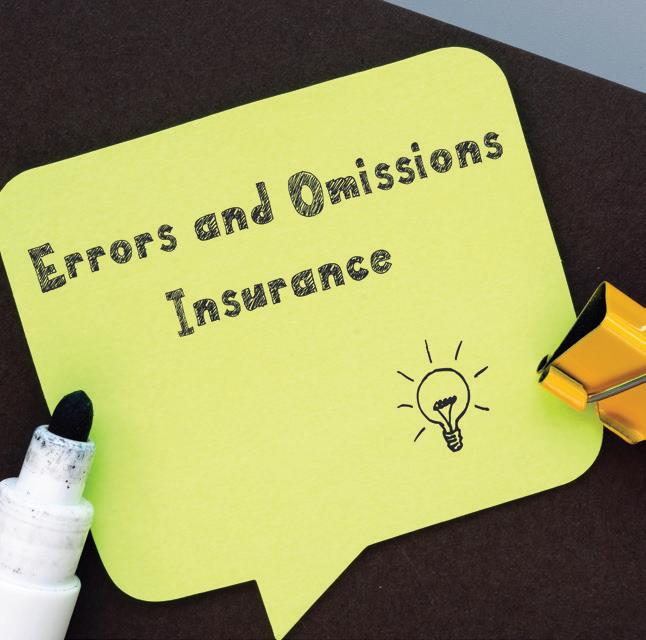


Cheryl Abrams Davis PRESIDENT
RE/MAX United Real Estate
14340 Old Marlboro Pike
Upper Marlboro, MD 20772
301.702.4200
cherylabrams@remax.net

Melanie Gamble SECRETARY
212 Degrees Realty, LLC 9701 Apollo Dr., # 301 Upper Marlboro, MD 301.343.8538 melanie@melaniegamble.com

Chris Hill
IMMEDIATE FORMER PRESIDENT
Century 21 New Millennium
23063 Three Notch Road
California, MD 20619
301.862.2169 chris@thechrishillteam.com

Denise Lewis PRESIDENT-ELECT
Brook-Owen Real Estate 41 E. Main Street Westminster, MD 21157
410.871.1110 denise@denisehasthekeys.com

Chris Jett TREASURER
Shore 4U Real Estate 23 Fountain Drive W 2nd Ocean City, MD 21842
443.523.2360 chris@shore4u.com

Chuck Kasky, RCE CHIEF EXECUTIVE OFFICER
Maryland REALTORS® 200 Harry S Truman Pkwy. Suite 200 Annapolis, MD 21401
800.638.6425 chuck.kasky@mdrealtor.org
Maryland REALTORS ® 200 Harry S Truman Parkway | Suite 200 Annapolis, MD 21401-7348
443.716.3500 | www.mdrealtor.org
Leadership Team
Cheryl Abrams Davis | President
Denise Lewis | President-Elect
Chris Jett | Treasurer
Melanie Gamble | Secretary
Chris Hill | Immediate Former President
Chuck Kasky, RCE | Chief Executive Officer Editor
Daniel Patrell | dan.patrell@mdrealtor.org
Advisory Committee
Kristin Skeweris | Chair
Donald Frederick | Vice Chair
Advertising
Arlene Braithwaite | 410.772.0820
Publication Design and Printing
Ironmark, 9040 Junction Dr, Annapolis Junction, MD 20701 888.775.3737 | ironmarkusa.com
The opinions expressed by nonstaff contributors may not reflect the official opinion of Maryland REALTORS® and/or policies derived from leadership and staff.
Maryland REALTORS® exists to support all segments of its membership and their specialties. Maryland REALTORS®, through collective efforts with local boards/associations and the National Association of REALTORS®:
■ Develops and delivers programs, services and related products that maintain and elevate the high standards of the real estate business and the professional conduct of its practitioners;
■ Assists members in ethically and professionally serving the public;
■ Promotes and preserves the right to own, transfer and use real property; and
■ Protects the right of members to conduct business within a framework of fair and reasonable laws and government regulations.
In principle and in practice, Maryland REALTORS® values and seeks diversity and inclusive participation within the field of real estate and recognizes each member as a unique individual.
In January, the Maryland legislative season officially commenced, marking the start of a dynamic period of lawmaking that impacts citizens and every industry doing business in this state. Each year, the Maryland General Assembly deliberates on hundreds of bills, many of which directly or indirectly affect property owners, real estate professionals, and the broader housing market.
To safeguard the interests of the real estate community, industry leaders such as Maryland REALTORS®, our 16 local boards and associations, their GADs, AEs, and our legislative committees play a critical role in monitoring, reviewing, and influencing proposed legislation to protect our industry. Our statewide legislative committees are composed of dedicated professionals and industry experts who are deeply invested in preserving a vibrant and fair real estate market while addressing the evolving needs of Maryland residents’ private property rights.
Each legislative session, the Legislative committee rigorously reviews, processes, and analyzes proposed bills, assessing their potential impact on the industry. The committee evaluates legislation across a wide range of topics, such as property taxation, landlordtenant relationships, zoning and land-use policies, environmental regulations, and housing affordability initiatives. By identifying key areas of concern and opportunity, the legislative committee ensures that the voice of the real estate community is heard in Annapolis.
With the support of our Legislative committee, the real estate industry remains poised to advocate for balanced, forward-thinking policies that benefit our members and Marylanders, while maintaining a thriving real estate market.
The committee’s recommended positions on legislation (whether to support or oppose and at what level) is reviewed by the Executive committee, then ultimately presented as our official position before the General Assembly.
Advocacy is at the heart of this process. The committee works closely with policymakers to provide expert testimony, propose amendments, and offer real-world perspectives on how proposed laws might affect our members and Marylanders who rely on the real estate industry—whether they are homebuyers, sellers, renters, landlords, or business owners. Through these efforts, the Legislative committee helps to shape legislation that promotes economic growth, protects property rights, and ensures the availability of affordable housing options.
In addition to our advocacy, Maryland REALTORS® serves as an invaluable resource, keeping members informed about legislative developments and equipping them with necessary tools to communicate directly to their elected officials through, for example, our annual Lobby Day event in Annapolis. When we must adapt to new regulations or industry changes, your state
association works tirelessly to communicate and educate through our various communication channels, like the Maryland REALTOR® Report, our webinars, and more. We seek to keep our members well informed, to better prepare them to address an ever-changing industry landscape.
As Maryland’s legislative season unfolds, the importance of proactive engagement cannot be overstated. With the support of our Legislative committee, the real estate industry remains poised to advocate for balanced, forwardthinking policies that benefit our members and Marylanders, while maintaining a thriving real estate market. Together, these efforts ensure that the industry continues to be a cornerstone of the state’s economy and a foundation for strong communities. ■
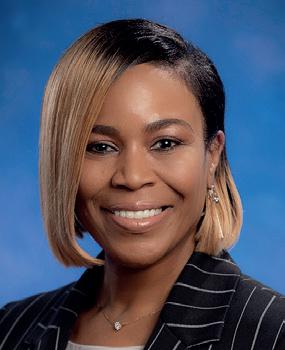
BY JACKY MUECK
We know you love Maryland REALTORS® magazine; we love it too! We know something else: while many of you like to read our print version, others prefer the magazine content as blogs or a digital PDF, both available through mdrealtor.org.
Well, for those who prefer digital over print, we’re excited to announce a new way to read online — and perhaps save a few trees in the process — in the form of ISSUU.
ISSUU creates an online, digital flipbook of the magazine that combines an enhanced form of online reading with extras, such as embedded hyperlinks, to take an article (or an ad!) further by accessing links more easily.
If we can reduce the print and mailing of our print issue by 3,000 issues (roughly 10 percent) by December 1, 2025, then Maryland REALTORS® will donate at least $5,000 to NAR’s REALTOR® Relief Foundation, which has helped so many communities in flood-ravaged hurricane zones and most recently with the California wildfires.
If you’re not getting the print magazine, do we have your correct mailing address?

On mdrealtor.org’s magazine page, you will see an embedded ISSUU reader, which will serve present and past issues of Maryland REALTOR® magazine. You’ll also be able to read our magazine on ISSUU directly! Scan this QR code to see some of our latest issues.
For those who prefer a print experience, you can still enjoy our print issue. For those who opt for digital-only, you have choices.
Producing, printing, and mailing a magazine is not cheap. Between paper and postage, our magazine represents one of the largest investments we make for our members. But if you prefer to read the content of each magazine digitally, then perhaps you can help us to lower our publication costs.

Use the Physical Magazine Opt-Out Form on our website by scanning the QR code here. If you like our print version, you don’t have to do anything; you’ll still get them! For those who wish to receive digital only, use this form. You will no longer receive the print edition, and we’ll send an email notification when our next digital issue is available.
If you need to update your address, remember to do so through your local board/association. When you change your address there, this change is then sent to Maryland REALTORS®. It’s always important to make this change with your local board.
Maryland REALTORS® is committed to our members and in providing the content of Maryland REALTOR® magazine in the form that works best for you. For some, that’s print. Others, digital. Whatever your method, we’re committed to delivering to you the most comprehensive information to keep you current in this everchanging industry.
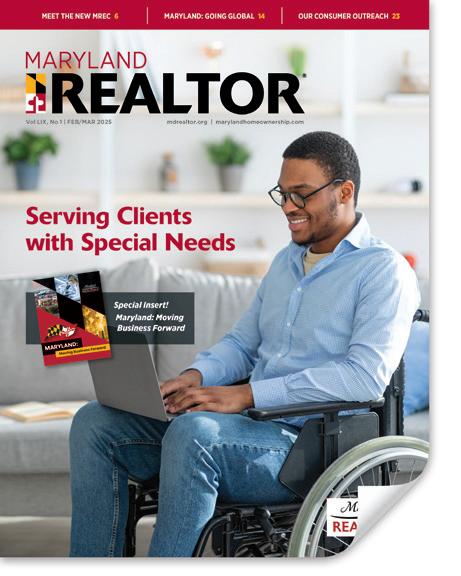


Jacky Mueck Is the Advocacy/Communications Administrator for Maryland REALTORS®.

Introducing a new way to get your services, products, deals, and messaging straight to Maryland REALTOR® members though Maryland REALTORS® Retargeting Ads!
With our retargeting ad packages, we will take your digital display ads and serve them to members on the sites they travel on the Internet. Whether it’s places like Yahoo!, or major and regional newspaper websites, your ads will be seen by our members wherever the Internet takes them. This creates impressions, of course, but more importantly, engagement with your messaging and your organization.
What you get with an ad retargeting campaign:
■ You serve ads directly and exclusively to your target audience
■ You have flexibility in the timing and length of the campaign
■ Your ad will appear in multiple locations across the web
■ You get live, real-time reporting of your ad performance via a live link
■ You can enhance your presence with unique ad sizes, to help you stand out, with a Supercharged Package
■ Are you appearing at our Annual Conference? Retargeting ads can be used to announce your attendance at our 2025 Conference, Charting New Waters
Want to find out more? Reach out to Arlene Braithwaite at advertising@mdrealtor.org to learn how you can make a retargeting ad campaign work for you!
Download our Advertising/ Sponsor Book!
Want to learn of all the ways you can deliver your messaging to the Maryland REALTORS® audience? Follow this QR Code today to learn about retargeting advertising, magazine advertising, email marketing, and event sponsorships!

Maryland REALTORS® is excited to welcome two new commissioners top the Maryland Real Estate Commission (MREC): Hope Mims and Jacqueline “Jackie” Alexander.
Mims is the Broker/Owner of Mims Realty Group, LLC, and brings over 14 years of experience as a licensee and Broker. She is actively involved in various REALTOR® organizations throughout central Maryland and is a graduate of the Maryland REALTORS® Leadership Academy. Her leadership and extensive industry experience will greatly benefit the Commission.
Jackie Alexander was recently appointed to the Maryland Real Estate Commission as an industry member representing the region encompassing Anne Arundel, Calvert, Charles, Prince George’s, and St. Mary’s County. Alexander is the Broker/Owner of 495 Real Estate, LLC, with over 19 years of real estate experience. She is a proud member of the Southern Maryland Association of REALTORS®, where she was named 2022 Realtor of the Year.

Maryland REALTORS® would also like to recognize its new Executive Director, Scott Lederer, who spoke to members at the 2024 Annual Conference in Ocean City. With 45 years’ experience, Scott has served this industry in virtually every imaginable function. Lederer has served as owner, broker of record, and regional president for several successful real estate firms.
As Executive Director of a statewide commission, Scott has had years of governance experience, having served several leadership positions at the Carroll County Association of REALTORS®, including two consecutive terms as its President. Lederer has also served on the Board of Directors of Maryland REALTORS® and numerous state and local committees. He graduated from Maryland REALTORS®’ Leadership Academy in 2004. ■




DEI Vice Chair John Young shares his experience and lessons learned in working with special needs clients.
John Young, currently serving as Vice Chair of Maryland REALTORS®’ DEI Committee, has worked extensively in helping clients with special needs and disabilities buy and sell homes. It’s a professional and personal journey for John, as he is a parent of a non-verbal daughter with autism. In 2019, John began speaking on serving clients with special needs as he recognized an absence of information that could help REALTORS® be more understanding and work more effectively with clients who have special needs or a disability. At the 2025 Installation and Awards Gala in Ocean City, Maryland REALTORS® recognized the spotlight that John has placed on serving this community and awarded him the DEI Leadership Award. Want to learn more about expanding your base by working with those who would like to be serviced equitably? Please read further.
Maryland REALTORS®: As a REALTOR® serving the community where you live, you found a niche in working with special needs clients. How did this come about?
John Young: Even though I am the parent of a child with special needs—I have a 15-year-old daughter with autism who’s nonverbal—I did not seek out other special needs clients or advertise myself as a special needs REALTOR®. I didn’t put the word out, didn’t even advertise that I’m a special needs parent. But what was happening was that, organically, clients were finding me. One in four Americans identify as having a disability. That number is pretty staggering, and if you think about it you don’t have to put your name out and say, “I’m an advocate for clients with disabilities,” or “I have a special needs child.” They’re going to find you, no matter what. That’s what happened.
I had an agent in Pennsylvania call me and say that he had clients that he wanted to refer to me. He didn’t say, “By the way, I think you are the right fit for them
as an agent because you’re the parent of someone with a child with special needs.” The reason he found me, he said, “I read your reviews, and you seem like you’re a person who cares a lot, and you help a lot of people.” This agent then said that this referral needs someone who cares and can provide a personal touch.
MR: No mention of a special need?
Young: He did say they were going to be “challenging,” and he mentioned that they had numerous needs. The agent left it there.
So, yes, I got in touch with them, and we scheduled a time to meet. I was at a coffee shop, waiting for them. When they arrived, I understood why the agent had said they were going to be “challenging.” The woman was severely physically disabled, in a wheelchair. I found out later it was the result of scleroderma, fibromyalgia and juvenile rheumatoid arthritis. Her partner was on the autism spectrum. He had a mental disability and had some behavioral challenges.
Anyway, I did what every REALTOR® does. When you sit down, meeting a new client, you have your intake form, and you’re trying to determine, what do they want? What are their needs? What type of amenities are they looking for? Why are they unhappy with where they’re living now? We needed to discover all the things that were important to take this couple to the next step—and it was a pretty long list of things they needed. They were living in a cramped twobedroom condo. They needed space for a caregiver because she was to the point where she needed help getting in and out of bed. They needed a place where they could have a live-in nurse sometimes, and they needed public transportation access because she worked in downtown DC. They needed a place where she felt like her partner would be comfortable while she was at work because he didn’t work. And then she added, ‘It’d be great if it had an elevator and a pool.” Their budget was $500,000.
…for people with special needs, some are on the side of the highway of life. A lot of people pass them by; nobody stops to help them along the way. I made the decision that I wasn’t going to be another person that does that.”
I’m thinking to myself, this is Washington, DC. Where are you going to find a place that’s under $1 million that has all the things they need? Even when clients say they need a place near the Metro, my next question is always, “What’s your budget?” Finding a place near a Metro station can tack $75,000 onto a house or residence.
They said all of this, and then I was a little distracted because I’m thinking, where can I take them? What kind of places are available in their price range?
And then she said, “There’s one other thing that I have to ask, and it’s really the most important thing. We’ve already worked with two other agents, and they let us go.” She paused and put her hand on mine and asked, “Are people like us a waste of time?”
MR: Wow.
Young: It was the way she said it, too. It struck something in me at that moment because I thought about my own daughter, and I thought, one day my wife and I aren’t going to be here for her. We’re not going to live forever. I don’t want anyone looking at our daughter and thinking she’s a waste of time. Nobody is a waste of time.
Anyway, after our conversation, I was overwhelmed with what was shared. I went back to my car and cried. It was a turning point in my career as a REALTOR® because it made me realize the importance of what we
do in the communities we serve. Yes, we find homes for a lot of people, but for people with special needs, some are on the side of the highway of life. A lot of people pass them by; nobody stops to help them along the way. I made the decision that I wasn’t going to be another person that does that.
Yes, it was a challenge to find them what they wanted, but we did find a place for them! When it came time for settlement, and I handed them the keys to their place, they cried, and the story came full circle.
But it’s like, what can you do to be better and proactively try to help people? You don’t know what somebody’s going through in life. You have no idea.
MR: How would you define “special needs” to other REALTORS®? It’s a rather broad category, isn’t it?
Young: One of the things that I always talk about when I present on special needs is that when you are working with someone who has certain challenges, be mindful of language. It’s so important because, believe it or not, the term “special needs” rubs some people in the disability realm the wrong way. They don’t like to be labeled as “special” because they want to be treated equally. I’ve never met anyone with a disability who doesn’t simply just want to feel as if society is treating them like an equal human being. Treat everyone as normal human beings; have some sympathy and empathy.

I’ve never met anyone with a disability who doesn’t simply just want to feel as if society is treating them like an equal human being.
MR: You’re talking about the “equity” part in DEI.
Young: Correct. The term “special needs,” one of the reasons why I title a lot of my talks “special needs” is that when you’re in the autism world, the term special needs is embraced. I’ve never run into a family with a child with autism that finds that offensive; they embrace the term and understand that it’s not meant to be derogatory.
And yet there are some people in the disability world that have been in that sphere their entire lives who don’t like the term. What I do is I preface my talk by saying that this presentation will encompass all people with disabilities. We all need to understand and respect how other people wish to be addressed.
MR: When it comes to a client of yours who has special needs or a disability, are there things that are differentiate how you would help them, whether they are a buyer or a seller?
Young: Yes. When it comes to buyers, obviously if you have a client with a physical disability, there are a lot of things that you need to be mindful of. Let’s say they weren’t in a wheelchair but still had a mobility issue, using a walker or some assisted device, you might intuitively think, “I have to find a place that doesn’t have a whole lot of steps, like a rambler, for example. But there are other considerations. A person with physical disabilities might not want a house that has different flooring throughout—part wood, part tile, part carpet—these things could affect mobility.
A driveway with a steep slope might prove difficult for some. In our area, some older houses have attached garages with no direct entrance from the house.
A REALTOR® needs to look out for things like that, amongst other considerations. If you’ve got a disability challenge or special need, you may need to have easy

access, not only to public transportation, but for medical providers as well, who might need to find the client easily.
You might not want to show a home way in the back of a neighborhood where it’s hard for somebody to find that particular individual, if they have a need for emergency services. You don’t want a house with a large yard that they can’t manage or take care of or any home maintenance that would be above and beyond what they’re physically capable of.
MR: How about sellers with special needs?
Young: From the standpoint of a seller, it’s important that you do everything you can to highlight all the amenities of that home because you are trying to make their home that may have been modified for someone with a disability to appeal to as wide of an audience as possible. And you want to make sure that if there is a buyer’s agent that is working with someone who has a disability, that they know the house has a handicap ramp and/or other amenities. If there are amenities compliant with the American with Disabilities Act, such as grab bars in the shower, it’s important to share all of this in the listing.
MR: Can you share more on the course you teach?
Young: It’s called, “The Do’s and Don’ts of Serving Clients with Special Needs.” The challenge with this talk is that the title doesn’t really tell you everything about it. There are people that might read a title like that and say, “Well, I don’t serve special needs clients, so I’m not going to come.” It’s so much more than just what the title suggests. It will make everyone understand the important role they play in the lives of helping others, and I hope it will instill compassion and understanding for everyone.
I find myself doing this talk multiple times per quarter. I’ve delivered it in over 20 states as of now. It’s an important message that REALTORS® need to hear. It’s made me a better REALTOR®, a better parent, and a better person. My hope is that it does the same for others. ■


“I’ve delivered this presentation in over 20 states, as of now,” said Young. “It’s an important message that REALTORS® need to hear. It’s made me a better REALTOR®, a better parent, and a better person. My hope is that it does the same for others.”

BY DAVID FRITZ

Maryland, often called “America in Miniature,” boasts a diverse landscape and a dynamic economy that mirrors the multifaceted industries seen nationwide. From biotechnology to cybersecurity, maritime to manufacturing, Maryland’s economy is a testament to its innovative spirit and strategic geographical advantage.
Maryland’s proximity to Washington, DC, makes it a prime location for businesses seeking access to federal agencies, policymakers, and funding opportunities. The state benefits from a robust infrastructure, including the Port of Baltimore—one of the busiest ports on the East Coast—and three major airports, which collectively support global trade and connectivity.
Additionally, Maryland’s highway and rail networks provide seamless transportation for goods and commuters. This connectivity positions Maryland as a logistical powerhouse, attracting businesses that require efficient supply chain management and international trade access.
Maryland is a national leader in biotechnology and life sciences, a sector fueled by its world-class research institutions. The state is home to renowned organizations such as the National Institutes of Health (NIH), Johns Hopkins University, and the University of Maryland. These institutions provide cutting-edge research that has fostered innovations in medical technology, pharmaceuticals, and genomics.
Maryland’s biotechnology companies, such as Emergent BioSolutions and Novavax, have been instrumental in addressing global health crises, including COVID-19. The state’s commitment to life sciences is supported by initiatives like the Maryland Stem Cell Research Fund, which promotes groundbreaking research and commercialization.
Known as the “Cyber Capital of America,” Maryland has a significant presence in the cybersecurity industry. The state hosts key federal agencies, including the National Security Agency (NSA) and the U.S. Cyber Command, which anchor a thriving ecosystem of technology firms and startups.
Maryland’s cybersecurity cluster benefits from a steady pipeline of talent graduating from institutions like the University of Maryland, Baltimore County (UMBC), and Capitol Technology University. The state also offers tax credits and grants to support cybersecurity firms, ensuring continued growth in this high-demand industry.
Maryland’s manufacturing and maritime industries are critical pillars of its economy. The Port of Baltimore specializes in handling automobiles, containers, and bulk cargo, contributing billions of dollars annually to the state’s economy.
Meanwhile, advanced manufacturing is experiencing a renaissance in Maryland, with companies adopting cutting-edge technologies like 3D printing and robotics.
Aerospace, defense, and electronics manufacturing are particularly prominent, supported by Maryland’s proximity to federal defense agencies and military installations.
Maryland fosters a supportive environment for small businesses and startups. Programs like the Maryland Small Business Development Center (SBDC) and TEDCO (Technology Development Corporation) provide entrepreneurs with resources, mentorship, and funding opportunities.
The state’s Innovation Hub initiative encourages collaboration between academia, industry, and government, creating ecosystems that accelerate the commercialization of new technologies. This focus on entrepreneurship ensures Maryland remains competitive in attracting innovative ventures.
Though Maryland is known for its urban hubs, its agricultural sector remains vital. The state produces poultry, dairy, and specialty crops like wine grapes and blue crabs, which are integral to Maryland’s cultural identity and economy.
Maryland is also a leader in renewable energy, particularly offshore wind and solar power. The state’s Renewable Portfolio Standard (RPS) aims to achieve 50% clean energy by 2030, positioning Maryland as a model for sustainable economic growth.
Maryland’s highly educated workforce is a cornerstone of its economic success. The state ranks among the top in the nation for the percentage of residents with advanced degrees. Institutions like Johns Hopkins, the University of Maryland, and community colleges provide workforce training tailored to high-demand industries.
To address skills gaps, Maryland has launched initiatives like the Workforce Development Sequence Scholarship and apprenticeship programs. These efforts ensure a steady supply of qualified professionals across diverse sectors.
Maryland’s economic development strategy emphasizes diversity and inclusion. The state supports minorityowned businesses through initiatives like the Maryland Minority Business Enterprise (MBE) Program, which ensures equitable participation in state contracts. This commitment to diversity strengthens the state’s social fabric and economic resilience.
While Maryland’s economic development story is one of success, challenges remain. Rising housing costs and transportation congestion pose obstacles to sustaining growth. Additionally, disparities in economic opportunity across regions highlight the need for targeted investments in rural and underserved communities.
However, Maryland’s focus on innovation, sustainability, housing affordability, and workforce development provides a strong foundation for addressing these challenges. By leveraging its strengths in technology, research, and education, the state is well-positioned to continue thriving in an increasingly globalized economy.
Maryland’s economic development is a dynamic blend of tradition and innovation. From its bustling port and agricultural roots to its cutting-edge biotech and cybersecurity industries, Maryland exemplifies the potential of a diverse and inclusive economy. As the state continues to invest in infrastructure, education, and sustainability, it remains a beacon of economic opportunity on the East Coast and beyond. When you are working with corporate customers, you have tremendous resources at the Maryland Department of Commerce and your local county economic development partners. ■



Thank you for your service and representation on NAR’s Boards and Committees!

ABRAMS DAVIS Board of Directors State & Local Issues Mobilization Support Committee


JACQUELINE BENNETT Board of Directors Global Business and Alliances Committee

BOYD CAMPBELL Board of Directors FPC Advisory Committee
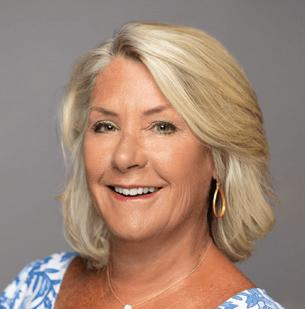

ARMSTRONG Board of Directors Real Property Operations Committee

J. RUSSELL BOYCE Board of Directors Member Communications Committee

RUSSELL BRAZIL Board of Directors State and Local Policy Committee



INDERA COGGINS CIPS Advisory Board

DAMATO Land Use Property Rights & Environment Committee




JAMES DIAMOND Board of Directors Research Committee


STEPHANIE HEALY DONNELLAN Data Strategies Committee

EMERY Board of Directors Conventional Financing & Policy Committee

FREDERICK Conventional Financing & Policy Committee

Diversity Committee

DORSEY Global Business and Alliances Committee

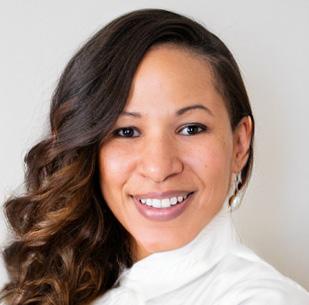
EVANS Board of Directors Federal Financing & Housing Policy Committee



GARRETT GILLESPIE Legal Action Committee

GREENE Board of Directors

JOHN HENTSCHEL Board of Directors Institute Advisory Committee

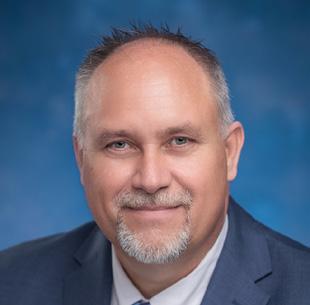
HILL Board of Directors Conventional Financing & Policy Committee







BETTY JANS Real Property Valuation Committee

JIMMIE JENNINGS Housing Opportunities Committee

GREGG KANTAK Global Alliances Advisory Board

CHUCK KASKY AEC/Recommendations and Recognition Advisory Board

DENISE LEWIS Membership Policy & Board Jurisdiction Committee

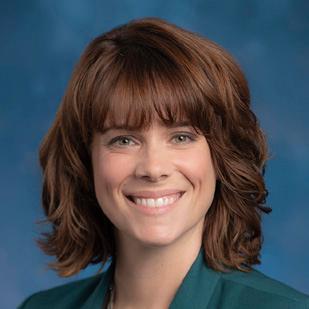
LISA MAY Consumer Advocacy Outreach Advisory Board

CAROLE MACLURE State and Local Issues Mobilization Support Committee

CHRISTA MCGEE Risk Management Issues Committee


ROBERT JOHNSON Land Use Property Rights and Environment Committee

Board of Directors Leading Edge Advisory Board
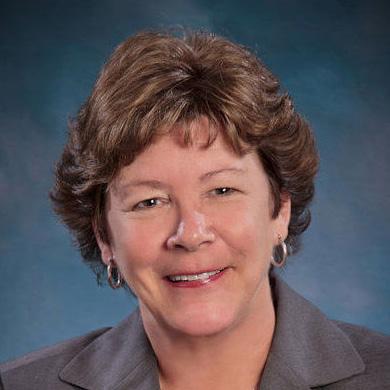
KIRKNER RPAC Participation Council
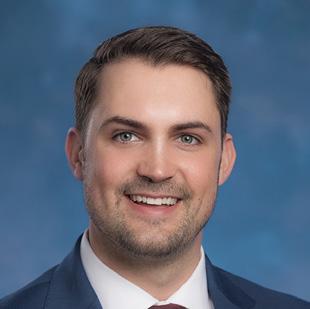
Risk Management Issues Committee

ANTHONY MANCUSO Professional Standards Committee

MATTISON Diversity Committee Multicultural Partners Advisory Group Strategic Planning Committee

DEE DEE MILLER Board of Directors Executive Committee

MRAVCA Global Business Alliances Committee






Professional Standards Committee Young Professionals Network Advisory Board


Board of Directors Business Issues Policy Committee Distinguished Service Award Council


and Alliances Committee

Board of Directors Business Issues Policy Committee





BY SUSAN YASHINSKIE
Are you ready to take your real estate career to the next level?
The Graduate, REALTOR® Institute (GRI) designation expands your knowledge base to new heights, with in-depth, comprehensive courses that touch on all real estate issues.
Because we know time and expenses are often tight, we offer virtual courses and cost-effective, offering greater flexibility than other real estate schools.
GRI is often referred to as the “REALTOR Master’s Degree,” and
includes an extensive curriculum made up of four series. Most of these courses offer continuing education credits.
The 100/200 Series is twelvecourse program designed to help navigate difficult and complex situations, including building and running your own business, handling environmental issues, regulatory requirements, understanding buyer representation, and even staying up to date on new technology trends.
When you have completed the 100 and 200 Series, you will have earned your GRI designation!

The 300/400 Series p eight additional courses that, when completed along with 100/200, earns you the 130 continuing education credits required by the Maryland Real Estate Commission to take the licensing test. The 300/400 Series takes you through intensive instruction on new construction, appraisals, land use, taxes, and broker law, and supervision issues.
Simple. You want to succeed. Education represents a path toward achievement of your goals, and Maryland REALTORS®’ GRI program can literally take you from start to finish.

To learn more or register today, follow the QR Code. ■
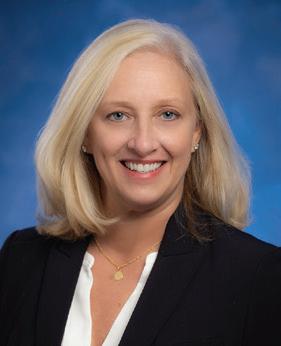
Susan Yashinskie is the Director of Professional Development & Member Engagement for Maryland REALTORS®.
BY LAUREN BUNTING
As REALTORS, we have so many experiences in our field that bring a high level of proficiency. Your clients look to you as the expert, so why not use that proficiency to be the “voice” of real estate in your local area?.
For nearly 15 years, I’ve written a real estate column for my local paper in Ocean City, Maryland. This practice has been very helpful in many ways. Initially when I approached my local editor with the idea, it was met with skepticism from the concern that other real estate agents who advertise might find that this column provided an unfair advantage. With the understanding that each column would be more informative, not “opinionated,” we agreed to a few months’ worth of columns that promoted education in the real estate market and nothing else. In truth, this was an easy task, as there are so many topics and subjects that surround homeownership and the real estate transaction that could benefit from a “deeper dive.”
One positive aspect of writing the column is that it has compelled me to stay up to date on the latest industry trends, sales data within my local market, as well as local, state, and national legislation.
Secondly, serving as a voice to the community has helped to generate some business—although that result didn’t happen overnight. Yet once you establish yourself as an authoritative voice in real estate, when you

write an article that impacts a homeowner, chances are they will call you with questions for more detail.
The weekly article I write is approximately 300-350 words in length; the word count itself limits any extensive amount of detail. For more in-depth topics, I’ve provided “installments.” For example, every year when the legislative recap comes out from Maryland REALTORS®, I write a series—about three to four issues in a row—about what happened in the legislative session and its impact on the industry and homeowners—and this is only covering the bills that pass.
Being such a voice, could be carried through to a social media platform—and there are those that do this! For every column I write, I share it through my social channels and
website. And yet for me, writing through a respected news outlet, provides a level of professionalism that Facebook and Instagram just don’t offer.
What about you? Are there news sites, blog sites, in your area that could carry solid real estate information from a trusted, authoritative voice? Who might that voice be? Could it be you? ■
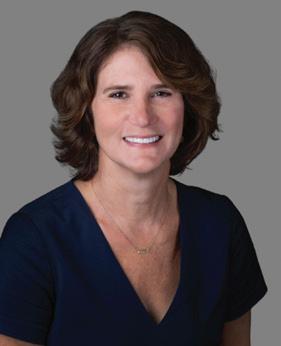
Lauren Bunting, in addition to writing a column for Ocean City Today, is the 2025 President of the Coastal Association of REALTORS®.
BY LISA MAY
Though they may not admit it, most elected officials have thought about their legacy. What impact will they make? How will they be remembered? What were their key accomplishments?
While we are only at the midway point of Governor Wes Moore’s administration, addressing Maryland’s housing crisis is shaping up to be a key theme of his time in office.
Last year, Moore succeeded in passing the Housing Expansion and Affordability Act, which codified Middle Housing for the first time, expanded opportunities for manufactured homes, and granted bonus density for qualified housing projects near transit, on former government and military installations, and on parcels owned by non-profits.
That alone is more than most of Maryland’s past governors can claim on housing. But the administration isn’t stopping there.
This session, Moore is introducing the Housing for Jobs Act of 2025.
The premise is simple: Maryland needs to have enough housing units to support its workforce. That is defined as one housing unit for every 1.5 jobs in the region.
In many areas of the state, we aren’t meeting that standard.
Under the Act, when a county or region has a jobs-to-housing ratio above 1.5, that jurisdiction will only be able to reject new housing units for specific reasons. Those include:

■ A shortage of water or sewer capacity
■ Specific adverse health or safety impacts to residents
■ Insufficient county-wide school capacity
■ Conflicts with state or federal law
■ Use of agricultural, industrial or conservation land, or
■ Failure to meet objective development standards at the time of project submission
Further, when a locality denies a housing permit, they must provide specific reasons for the denial in writing. If the denial is not for an approved reason, the decision may be challenged in court.
These restrictions will remain in place until that area’s ratio falls below 1.5, as measured each year by the Department of Housing and Community Development (DHCD). In addition, localities that are currently below the ratio could be subject to the bill in the
future if they experience sufficient job growth without corresponding housing growth to keep them below the 1.5 limit.
This accounting is not meant to provide a hard target for local governments to provide a certain number of units in a specific timeframe. However, it is an acknowledgment that current policies are not keeping pace with current needs.
Why the focus on tying housing to jobs?
Practically speaking, every city and county wants an abundance of jobs. What they and their residents may not favor is the additional housing which supports those jobs and those workers.
In outlining the case for this bill, the administration cited several factors. First, Maryland’s housing costs have far exceeded wage growth, which has resulted in the state ranking just 43rd in housing affordability. All of Maryland’s surrounding states rank significantly higher in affordability.
continued on page 25
BY CHUCK KASKY
Following the March 2024 National Association of REALTORS® (NAR) settlement in the Sitzer/Burnett case, consumers were treated to a frenzy of media reporting, most of it inaccurate, about what this case meant for buyers and sellers of residential real estate. Making matters even worse were self-declared real estate experts on social media, most of whom were providing incorrect advice and misinformed predictions to both real estate professionals and consumers. Also, NAR’s initial crisis communication efforts were rooted deeply in a defensive posture as it responded to the settlement, leaving members confused and unsatisfied.
As this unfolded nationwide, leadership at Maryland REALTORS®, led by 2024 President Chris Hill, directed the Association to create a plan that would speak directly with consumers about the realities of real estate and the transparency already in place in Maryland.
Maryland REALTORS® was better equipped than most other states in addressing this because: 1) Maryland law has required the use of written buyer representation agreements since October 2016; and 2) since 2019, Maryland REALTORS® was already speaking to consumers directly through its MarylandHomeownership.com website, which was created to provide honest and accurate educational information and resources

about the homebuying and selling process, free of any ads and/or sales influence.
Leveraging various resources, including grants and our Legal and Regulatory Response Fund, we launched a robust Consumer Campaign to direct them to the resources available through our consumer site. Our primary goals for this campaign were straightforward: to encourage consumers to visit MarylandHomeownership.com to learn about the steps involved in buying or selling a home, including the VALUE and WORTH a REALTOR® brings to the transaction. We also wanted to bring additional transparency to the issue of compensation in real estate.
Our secondary goal was to encourage Association members to use assets and resources from MarylandHomeownership.com as they work with their clients. What follows is an executive summary of a report prepared by Maryland REALTORS®’ Senior Director of Communications Dan Patrell,
which provided an update on the campaign so far.
Supported by an NAR Advocacy Grant and all 16 Maryland local boards and associations, Maryland REALTORS® placed full-page newspaper ads in newspapers throughout Maryland and digital ads on newspaper websites in the week leading up to the August 14 deadline for implementing the changes required by the NAR Settlement.
As mentioned above, MarylandHomeownership.com has been educating consumers since its launch in 2019. To prepare for a consumer campaign that would direct traffic to the site, more content in a variety of formats needed to be developed. With assistance from an NAR Fair Housing grant, Maryland REALTORS®:
■ Updated the Buyer and Seller toolkits to reflect industry changes required by the Settlement
■ Created Spanish language
continued on page 25
BY GREGORY HARE
Spring is a season of new opportunities, and there’s no better time to help your clients plant roots in a home of their own. The Maryland Mortgage Program (MMP) offers realtors the tools and resources needed to guide buyers through the challenges of homeownership, from downpayment assistance to programs tailored to overcome hurdles like student debt and rising costs.
Below are some of the most advantageous MMP partnership products:
■ 1st Time Advantage 5% DPA Loan: This product comes with down payment and closing cost assistance equal to 5% of the first mortgage while still maintaining a competitive interest rate on the first mortgage. Borrowers must be first-time homebuyers.
■ FHA 203K Limited Loan: Allows for additional financing for repair/modernization as part of the home purchase.
■ Flex 3% DPA Loan: This product comes with a loan equal to 3% of the first mortgage. Can be a repeat or first-time homebuyer.
Fill 2025 with new homes, and new beginnings! ■

Follow us on social to stay up to date: facebook.com/ marylandmmp/ instagram.com/ marylandmmp/ x.com/ marylandmmp

Hare is the Assistant Secretary, Maryland Department of Housing and Community Development. mmp.maryland.gov, singlefamilyhousing. dhcd@maryland.gov, 1-800-756-0119
HOUSING ADVOCATE continued from page 22
Maryland is also lagging in economic production from its construction sector, where housing permits issued have fallen 60% since 2008. This is one of the main reasons our state’s gross domestic product (GDP) is currently growing at half the national average. Of course, simply comparing jobs to housing units doesn’t tell the full story. Under DHCD’s analysis, Western Maryland, Southern Maryland, and the Eastern Shore all have ratios that fall below 1.5, at least for the current year. That should not be
versions of our Buyer and Seller toolkits and our annual Fair Housing brochure
■ Added weekly educational blogs
■ Created new video content With the combined efforts of Maryland REALTORS® Advocacy and Strategic Communications departments and the Housing Opportunity Committee, the Association created a constant stream of new content for the site. New videos, new blogs, and other resources have been added almost weekly. Our latest video content for the site is a series that explains to consumer how REALTORS® get paid.
The campaign ran for six weeks from late September through early November. To reach consumers, we advertised using almost a dozen methods. To gauge effectiveness, we tracked impressions, clicks, and click-through rates from each major point of advertising. In total, the campaign generated more than 17 million impressions and more than 35,000 clicks to
taken to mean that those areas don’t have housing needs or challenges. While those areas may have enough units on paper, those units may not meet the needs of all residents or may not be affordable for the local workforce. It also doesn’t account for areas that need job growth but aren’t experiencing it, in some cases, due to a lack of housing options.
That’s why this legislation, like most housing legislation, is tackling just one piece of the puzzle. It will take multiple and sustained efforts to
tackle a housing crisis that has been decades in the making.
So far, Governor Moore has been willing to take on housing as a core plank of his time in office. And what a legacy that would be for the residents of Maryland. ■

MarylandHomeownership.com. Also, while the campaign was running, social media assets for MarylandHomeownership.com recorded significant growth.
We continually adjusted the site and utilized Search Engine Optimization (SEO) practices, which resulted in dramatically improved rankings and consistent appearance among the first search results. The bottom line: the campaign worked. From nearly 17 million impressions, the site experienced more than 160,000 “events,” actions taken on MarylandHomeownership.com.
Each event is a marker of a consumer performing an action on the site. In addition to page views, we tracked first visits and user engagement and more concrete actions like downloading a toolkit or signing up for a webinar. These actions will provide insights into what to promote in future campaigns.
As it was an important element in developing creative content, REALTOR® Value was tracked as well. Much of the audience brought
in from the campaign spent time on the REALTOR® Value page.
After review of the results, and looking ahead to the spring market, Maryland REALTORS® will launch this campaign again, with new creative focusing on the spring market, set to begin April 2025 and running again for six weeks. We will adapt the campaign to what we learned and adjust our messaging accordingly.
Once again, we demonstrated our resilience in the face of great challenges. Keep the faith and let us know what we can do as we navigate through the ever-changing landscape. And remember: MarylandHomeownership.com is your resource as well, for the clients and communities you serve. ■
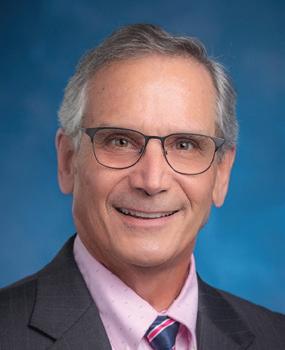
BY DEBBIE BINDEMAN, PEARL INSURANCE
Managing the risk exposure for your firm through errors and omissions (E&O) insurance is vital to avoiding or mitigating risk and effectively dealing with problems if they do occur. As experts in the field, Pearl Insurance is here to help you understand your E&O policy so you can focus your attention on real estate.
Errors and omissions insurance is important to insure yourself and your livelihood. It acts as a shield against unforeseen legal challenges, protects personal assets, upholds professional integrity, and enhances client trust, providing a safety net in an inherently complex and litigious industry.
■ Personal Asset Protection. In the absence of E&O insurance, a single mistake or lawsuit alleging negligence could put your personal assets at risk. E&O coverage acts as a safety net, safeguarding personal assets against potential legal claims arising from professional errors or omissions.
■ Client Confidence and Trust. Having E&O insurance can instill confidence in clients, showcasing that you are prepared for unforeseen circumstances and are committed to protecting your clients’ interests.
■ Legal Defense Costs. Legal defense costs can be exorbitant, regardless of the validity
of a claim. E&O insurance covers legal expenses, including attorney fees, court costs, and settlements or judgments in covered claims. Without this coverage, real estate professionals might have to bear these expenses out of pocket, which can be financially debilitating.
■ Professional Reputation Protection. A lawsuit or claim can significantly tarnish a real estate professional’s reputation. Having E&O insurance in place can demonstrate a commitment to professionalism and responsibility in handling any potential errors or omissions.
■ Comprehensive Risk Mitigation. While some errors or omissions might not immediately result in legal action, they can still impact client relationships and result in financial losses. E&O insurance offers comprehensive risk mitigation, providing coverage for a wide range of potential errors, even if they don’t lead to legal claims.
In general, errors and omissions policies cover the delivery of professional services by those insured. But here is a more specific
list of what E&O insurance policies could cover:
■ Automatic fair housing discrimination
■ Real estate agents, brokers, and more
■ Residential transactions
■ Commercial transactions
■ Land transactions
■ Agent-owned residential transactions
■ Property management
■ Mold claims
■ Lockbox
■ Open house property damage
■ Defense outside the limits
■ Liberalization clause
■ Innocent partner
■ Subpoena assistance
■ Extended Reporting Period (ERP)
■ Network & privacy
■ Public relations advisory services
■ Defense for disciplinary proceedings
■ Early claims resolution for defense and damages
■ Personal injury
■ Identity theft
■ First-party cyber liability
■ Other optional coverages
This list is not all-encompassing. Some of the coverages included in your E&O policy may not be on this list.
continued on page 28
Q: Am I required to provide a sign language interpreter for a hearing-impaired client, if requested?
BY KIM LINK, ESQ.

A: Yes. The Americans with Disabilities Act (ADA) makes it unlawful to discriminate against people with disabilities. This includes those with physical or mental impairments that significantly limit major life activities, those with a history of such impairments, or those perceived to have such impairments. Many people think of the ADA as it relates to architectural barriers to accessibility for individuals with disabilities. However, the ADA also applies to communication barriers. The ADA covers most businesses that service the public, including real estate offices.
The ADA mandates that businesses communicate effectively with people who have communication disabilities. This means ensuring that communication with these individuals is as effective as with those without disabilities. If a client who is deaf or hearing-impaired
requests auxiliary aids and services, you must provide them, as long as it is achievable without much difficulty or expense. Auxiliary aids and services include a variety of technologies and services such as qualified interpreters, note takers, written materials, assistive listening devices, and more. The goal is to make orally delivered materials accessible.
The ADA suggests consulting with the individual to determine the most effective aid or service. In many cases, the client may be able to provide information on their preferred method of communication such as a specific interpreter or video relay service. The final decision rests with the business, provided the chosen method ensures effective communication. If a client requests an interpreter, you must provide a qualified interpreter who can accurately and impartially interpret using any necessary
specialized vocabulary. For real estate transactions, it’s important to find an interpreter familiar with real estate terminology. A business cannot require a client to bring their own interpreter. However, an adult accompanying the client can interpret if the client requests it, the accompanying adult agrees, and it is appropriate under the circumstances. This may not be suitable if there are concerns about the accompanying adult’s impartiality or effectiveness. For example, it may be inappropriate to rely on an accompanying adult to interpret who has a personal stake in the outcome of a transaction.
Businesses can ask for reasonable advance notice for requests for aids and services but cannot impose excessive advance notice requirements. They must provide aids and services unless it causes an undue burden, defined as significant
continued on page 28
FROM THE HOTLINE continued from page 27
difficulty or expense. If a specific aid or service is too burdensome, an alternative must be provided if possible. In determining whether a particular aid or service would result in an undue burden, businesses should take into consideration the nature and cost of the aid or service relative to their size, overall financial resources, and overall expenses. The cost of the aid or service must be covered by the business and cannot be passed on to the client.
Non-compliance with the ADA can result in significant penalties for businesses. Civil penalties for a firsttime violation can be up to $75,000 and up to $150,000 for subsequent
AFFINITY PARTNERS continued from page 26
Most E&O policies have at least a few exclusions. Make sure to thoroughly read all of the exclusion language so you’re aware of what would be excluded from a policy. Some common exclusions on E&O policies include claims arising from:
■ Bodily injury
■ Fraudulent or criminal acts (by the insured)
■ Bankruptcy
■ Discharge of or failure to identify pollution
■ Employment-related issues for the brokerage staff
■ Misappropriation or commingling of funds
■ Discrimination
■ Violation of securities laws
Coverage can be diminished by exceptions if you’re not careful in reviewing what the policy actually
violations. Businesses may also be required to pay compensatory damages to individuals affected by the non-compliance. Ensuring ADA compliance is crucial not only to avoid these penalties but also to foster an inclusive environment for all customers. Real estate brokers should establish ADA compliance policies and provide ongoing staff training on effective communication with people who have communication disabilities.
For more information, visit ADA.gov or call the ADA Information Line at 800-514-0301 (Voice) or 1-833-610-1264 (TTY).
Other resources include:
Maryland Department of Disabilities (mdod.maryland.gov)
Governor’s Office of the Deaf and Hard of Hearing (odhh.maryland.gov)
National Association of REALTORS® ADA Compliance Kit (nar.realtor/ legal/complying-with-federal-regulations/americans-with-disabilitiesact-compliance-kit) ■
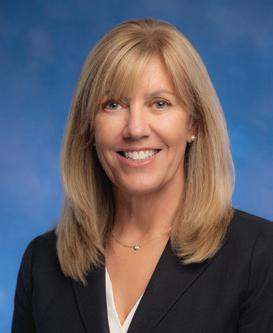
Kim Link is the Director of Legal Affairs for Maryland REALTORS®.
provides. The good news is that you can add endorsements if you’re qualified.
What endorsements can I add to my E&O policy with Pearl Insurance?
To offset some exclusions, Pearl Insurance offers endorsements you can add to make your policy comprehensive and customized for your firm.
■ You can add coverage for bodily injury and property damage claims for all real estate services, and separately for property management services, when your general liability carrier will not cover the claim.
■ Our construction/development coverage adds coverage for claims arising from a property an insured constructed or developed.
■ Pearl offers a deductible waiver if you do not want to pay the deductible associated with claims. In order to add this endorsement, you must use standard contracts, offer home warranties, offer inspections, and include a seller’s disclosure form.
Pearl Insurance is committed to helping you manage your risk. Our carrier, AXA XL, rated A+ (Superior) on AM Best, has been partnering with Pearl for 20 years, providing you with the best E&O protection.
Ready to get a quote for your E&O insurance? Give our experts a call at (855) 465-0200. ■

Debbie Bindeman, CCPU, ARP, RCLS, is the Senior Account Executive, Eastern Region, for Pearl Insurance. Email Debbie at debbie. bindeman@ pearlinsurance.com..
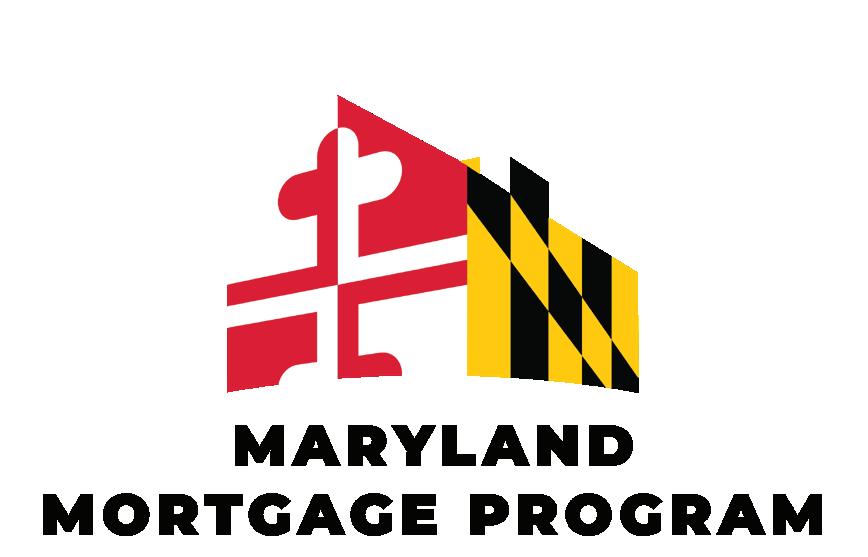

1ST

Introducing the new ODP Store Discount Program, which offers great deals on thousands of essentials for your home, office or education.
Two Ways to Save:

Important SDP Details:
• Current Store Purchasing Cards (SPCs) automatically rollover to SDP
• Verify your SDP membership for in-store standard discounts and contracted pricing on specific product categories
• Account billing is not available with SDP
ODP Perks:
• Savings of up to 75% on Best Value products
• Delivery or in-store pick-up options
• Discounts on copy and print services
• See flash sales on your dashboard upon account log in
Have questions about your ODP Business Solutions Savings Program? Call 1-800-MEMBERS (636-2377), Monday through Friday from 8 a.m.–5 p.m. ET, or email enroll@1800members.com.

Scan the QR code or visit o odpbusiness com/ marylandrealtors to log in to your account and access your discounts today! Text M MARSPC to 8 833-344-0228 to receive exclusive limited-time offers.